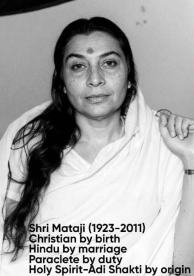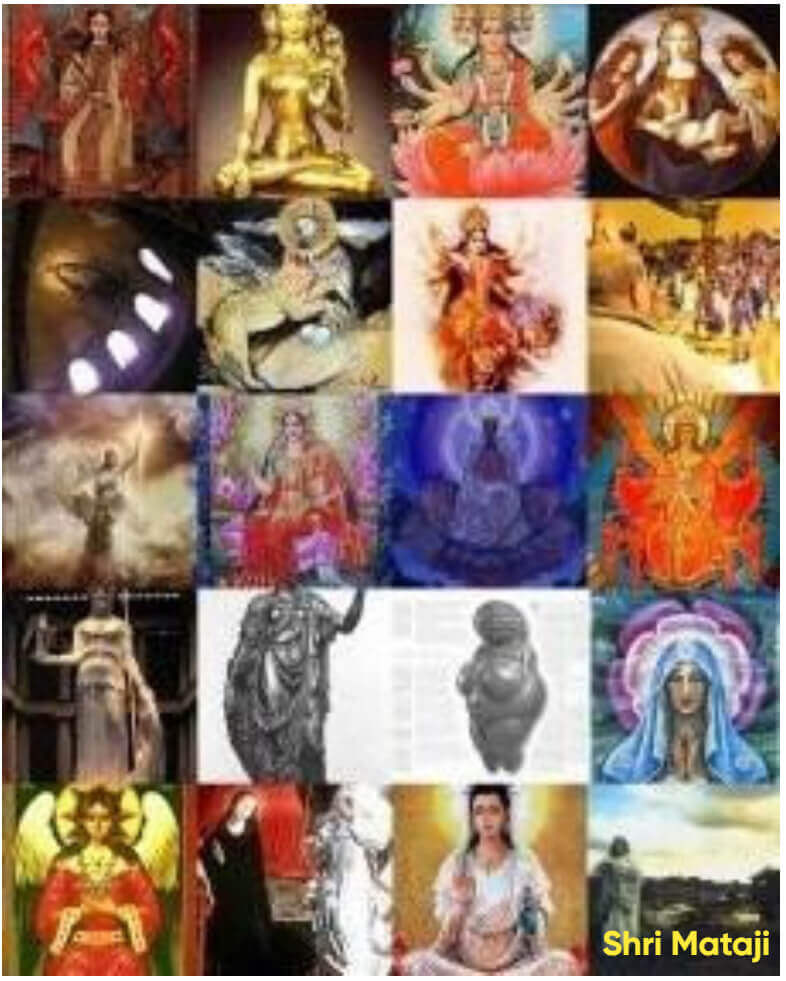The Eternal Tao and Doorway of the Mysterious Female
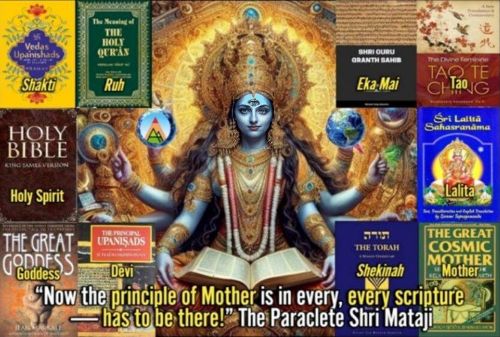
The Eternal Tao and the Doorway of the Mysterious Female invite us to rediscover the divine within. Laozi’s teachings reveal that the feminine principle—creative, nurturing, and harmonizing—is not only the source of Heaven and Earth but also the essence of our own being. By embracing stillness and receptivity, we open this inner gateway and align with the timeless flow of the Tao.
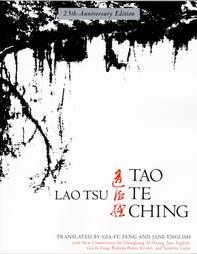 The Tao of Laozi (Lao Tzi)
The Tao of Laozi (Lao Tzi)
“'Tao' is a Chinese word meaning 'way', 'way of Heaven', 'Path' or 'road' or 'method'. It indicates a line or principle of conduct. There is no proper English term for 'Tao'. It means the 'Eternal Being'.
The Founder of Taoism was Lao-Tze. Lao-Tze was born in 604 B.C. in the village of Chu-Jhren, in Li country, belonging to the Ku province of the State Chu. He was born under the plum tree (in Chinese 'Li'). He adopted it as his surname. The hair of the head was white when he was born. Hence he was called Lao-Tze (old boy) or philosopher, one who is child-like even when old.
He was popularly called Lao-Tze. His name was Er (ear). He was called Tan after his death. 'Tan' means 'long lobe'. He had peculiar long ears. His appellation was 'Po Yang' or "count of positive principle." He was a keeper or recorder of the secret Archives in the Royal court of Chore. He was a State Historian.
Lao-Tze says: Tao is one. It was in the beginning. It will remain for ever. It is impersonal, eternal, immutable, omnipresent, bodiless, immaterial. It cannot be perceived by the senses. It is nameless. It is indescribable.
It is the first cause from which all substances take their origin and all phenomena flow. The great Tao is all-pervading. All things depend on it for life. It is The Mother of all phenomena, of heaven and earth. It existed before the Personal God. It is the father of God. It is the producer of God. It is the originator of heaven and earth. It is The Mother of all things.
You will find that there is an aroma of Indian Vedantic philosophy in the teachings of Lao-Tze.
Tao is everywhere. It is in the ant. It is in the grass. It is in the earthen-ware vessel. It is in excrement. It is in the highest place but is not high. It is in the lowest place, but is not low. It is in ancient times, but itself is not ancient. It is in old age but itself is not old. It is everywhere, but appears to be nowhere.
Tao is the sanctuary where all things find refuge. It is the good man's priceless treasure. It is the guardian and saviour of him who is not good. (Sri Swami Sivananda)
Laozi believed that females are The Mothers of all things and all human beings. In accordance with Dao, which generates everything, females are those that produce all things. Without females or mothers, there is nothing else in the world.
The mystery of the valley is immortal;
It is known as the Subtle Female.
The gateway of the Subtle Female
Is the source of the Heaven and Earth. (Chapter 6)
In another chapter, Laozi observed:
The beginning of the world
May be regarded as The Mother of the world.
To apprehend The Mother,
Know the offspring.
To know the offspring
Is to remain close to The Mother,
And free from harm throughout life. (Chapter 52)
As per Daoist humanism, females, instead of males, are usually highly regarded in his writing:
Know the male
Hold to the female;
Become the world's stream.
By being the world's stream
The Permanent De (or humanism) will never leave.
This is returning to Infancy. (Chapter 28)
From this perspective, it is easy to see that femininity and mothering were highly valued by Laozi. Simply speaking, nothing in the world is as important as women and mothers. If many philosophical and religious ideas tend to maintain male superiority or dominance directly or indirectly (e.g., Confucianism; Hinduism; Christianity, including Mormonism; Islam; Chauvinism; or Freudianism), Daoism differs because females play a more important role in humanism than males. This point may not have been well understood in modern feminist research (see Laughlin & Wong, 1999). Perhaps philosophically or religiously, Laozi could be seen as one of the first proponents of feminism in human history.”
Winter 2003 64-85
From the introduction to the translation by Stephen Mitchell
The Eternal Tao and the Doorway of the Mysterious Female
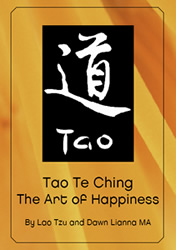

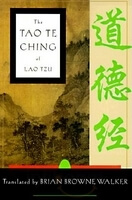
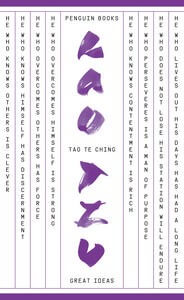
The concept of the Eternal Tao and the “Doorway of the Mysterious Female” as articulated in Taoist philosophy, particularly in the Tao Te Ching, points to an immanent, universal principle of creation, sustenance, and transcendence that resides within all beings. This idea synthesizes the ineffable nature of the Tao (the "Unnameable" source of all existence) with the archetypal Feminine as the generative, nurturing, and harmonizing force that animates life.
1. The Eternal Tao: Transcendent Yet Immanent
The Tao, as Lao Tzu describes, is the unspoken, eternal reality beyond linguistic or conceptual capture. It is the “beginningless, supreme” force (paralleling the Hindu Brahman), both transcendent (beyond time and space) and immanent (present in all phenomena). This duality reflects the Tao's nature as both the source of existence and the essence permeating it. As Chuang Tzu notes, the Tao is “the changing changeless and changeless change,” existing simultaneously as the immutable ground of being and the dynamic flow of life.
Key to understanding its presence “within us” is its immanence: the Tao is not a distant deity but the very fabric of existence, including human consciousness. The Tao Te Ching (Chapter 6) likens it to the "Mysterious Female," the womb-like void from which all creation emerges:
"The mystery of the valley is immortal;
It is known as the Subtle Female.
The gateway of the Subtle Female
Is the source of Heaven and Earth."
This "gateway" symbolizes the Tao's generative power, not as an external force but as an internal, ever-present potentiality within all beings.
2. The Feminine Principle: Embodiment of the Tao's Creative Power
The Tao's association with the Feminine is central to its philosophy. Lao Tzu elevates the Feminine as the primal creative force—the “Mother of all things” (Chapter 52). Unlike patriarchal traditions that prioritize masculine dominance, Taoism venerates qualities like receptivity, humility, stillness, and nurturing (yin), which align with the Feminine archetype. These qualities are not gendered but universal, accessible to all as a mode of aligning with the Tao.
Stephen Mitchell's translation deliberately uses "she" for the Taoist "Master" to emphasize this:
“The teaching of Lao-tzu is by far the most female... [The Master] is essentially us.”
By framing the ideal sage (the "Master") through feminine virtues, the Tao Te Ching underscores that the Tao's wisdom is realized not through domination but through yielding, adaptability, and harmony with natural rhythms. The "Mysterious Female" thus represents the inner capacity to receive and generate life, mirroring the Tao's creative void.
3. The Doorway Within: Accessing the Tao Through Inner Stillness
The “Doorway of the Mysterious Female” is not a physical portal but a metaphor for the inward path to realizing the Tao. Lao Tzu repeatedly stresses that the Tao is known through wu wei (non-action), emptiness, and introspection—states that dissolve egoic striving and open the mind to the eternal present. As the Tao Te Ching states:
"To know the offspring
Is to remain close to The Mother,
And free from harm throughout life" (Chapter 52).
Here, the "Mother" (the Tao) is the source, and "offspring" are the manifestations of existence. By turning inward—“holding to the Female” (Chapter 28)—one reconnects with the Tao's immanent presence. This mirrors Carl Jung's observation that the Self (the transcendent aspect of psyche) is "not subject to the laws of space and time," existing beyond dualistic confines.
4. Universality of the Perennial Philosophy
The texts highlight the Tao's resonance with other mystical traditions (e.g., Hindu Brahman, Sufi Haqq, Christian mysticism), all pointing to a nameless, formless Reality accessible through inner awakening. Thomas Aquinas' assertion that "All that is true... has its origin in the Spirit" aligns with Lao Tzu's view of the Tao as the universal substrate. The “Doorway of the Mysterious Female” is thus not exclusive to Taoism but a cross-cultural archetype of the Divine Feminine as the immanent gateway to transcendence.
Conclusion: The Eternal Tao as the Inner Divine Feminine
The "Doorway of the Mysterious Female" within us is the latent capacity to embody the Tao's wisdom—receptivity, creativity, and harmony. It exists "all the while" because the Tao is not separate from existence but its essence. To recognize this is to realize that:
- The Feminine is not “other”: It is the primal, nurturing force inherent in all life, transcending gender.
- The Tao is self-knowledge: As the Tao Te Ching teaches, "To apprehend the Mother, know the offspring"—understanding the world begins with understanding oneself.
- Awakening is returning: Like water flowing to the sea, aligning with the Tao is a return to one's innate nature, the “Infancy” of undivided wholeness (Chapter 28).
In this light, the Eternal Tao and its “Mysterious Female” doorway are not philosophical abstractions but lived realities. By cultivating stillness, humility, and reverence for life's interconnectedness, we open this inner gateway, realizing the Tao as our own boundless, unspoken truth.
Pariah Kutta (https://adishakti.org)https://chat.deepseek.com/a/chat/s/e9589aa8-1577-4702-a6cc-e19a0cd20e5d
Related Articles:
THE GREAT MOTHER
The Divine Feminine in China
The Indian Religion of Goddess Shakti
The Divine Feminine in Biblical Wisdom Literature
The Feminine Spirit: Recapturing the Heart of Scripture
Islam and the Divine Feminine
Tao: The Divine Feminine and the Universal Mother
The Tao as the Divine Mother: Embracing All Things
The Tao of Laozi and the Revelation of the Divine Feminine
Doorway of Mysterious Female ... Within Us All the While
The Eternal Tao and the Doorway of the Mysterious Female
Divine Feminine Remains the Esoteric Heartbeat of Islam
Holy Spirit of Christ Is a Feminine Spirit
Divine Feminine and Spirit: A Profound Analysis of Ruha
The Divine Feminine in Sufism
The Primordial Mother of Humanity: Tao Is Brahman
The Divine Feminine in Sahaja Yoga
Shekinah: She Who Dwells Within
Shekinah Theology and Christian Eschatology
Ricky Hoty, The Divine Mother
Centrality of the Divine Feminine in Sufism
A God Who Needed no Temple
Silence on (your) Self
The Literal Breath of Mother Earth
Prophecy of the 13 Grandmothers
Aurobindo: "If there is to be a future"
A Comprehensive Comparison of Religions and Gurus
